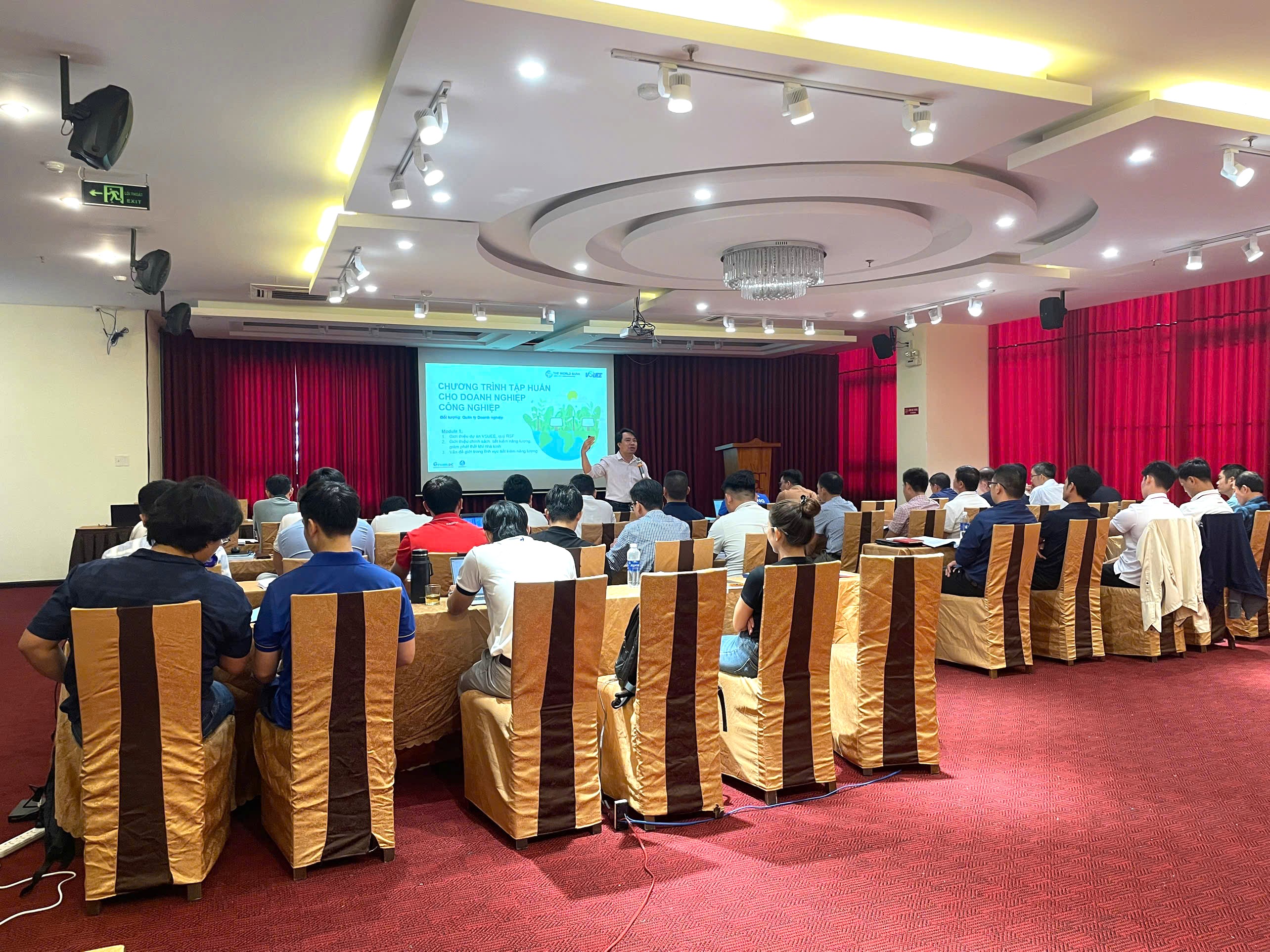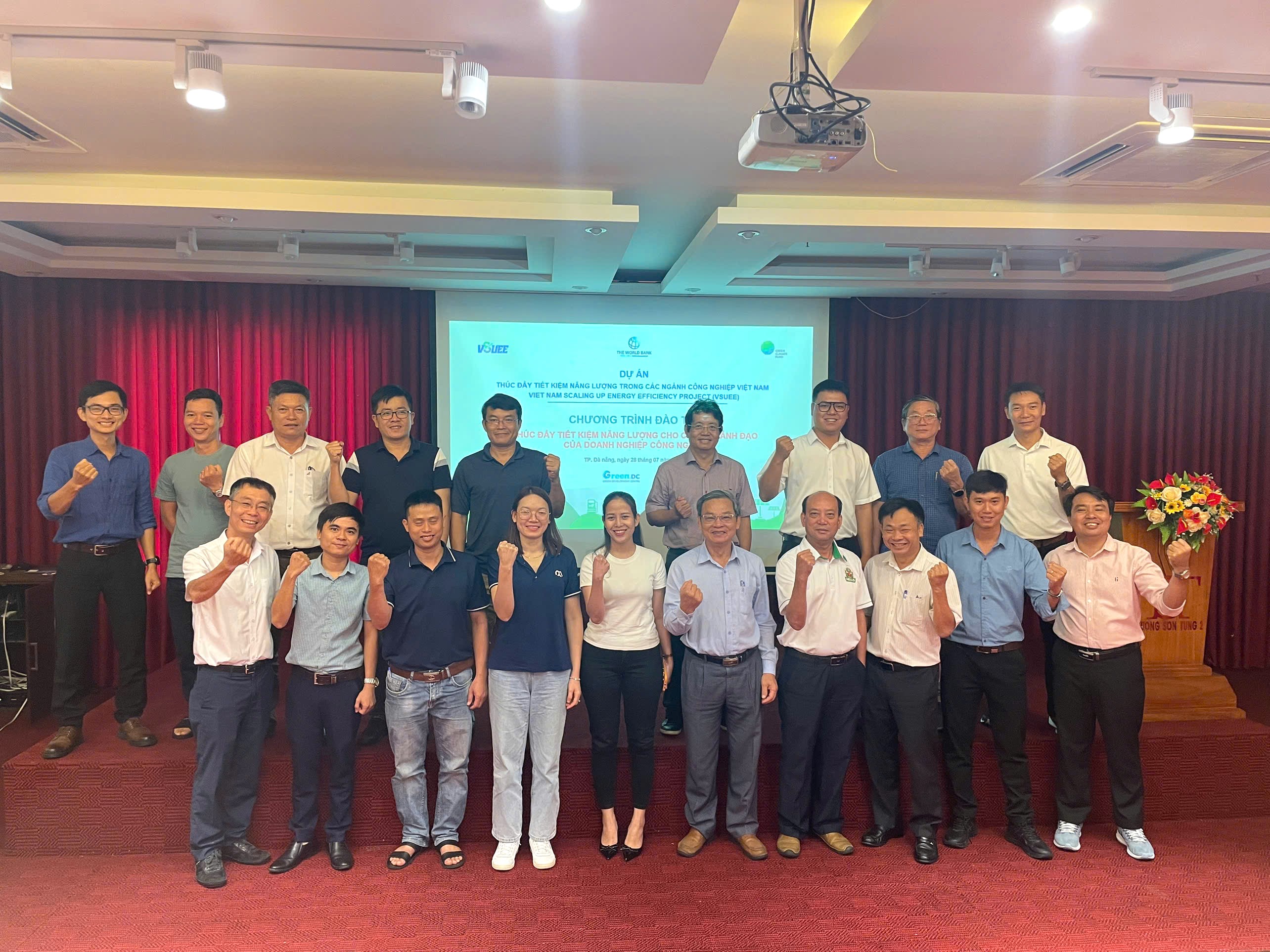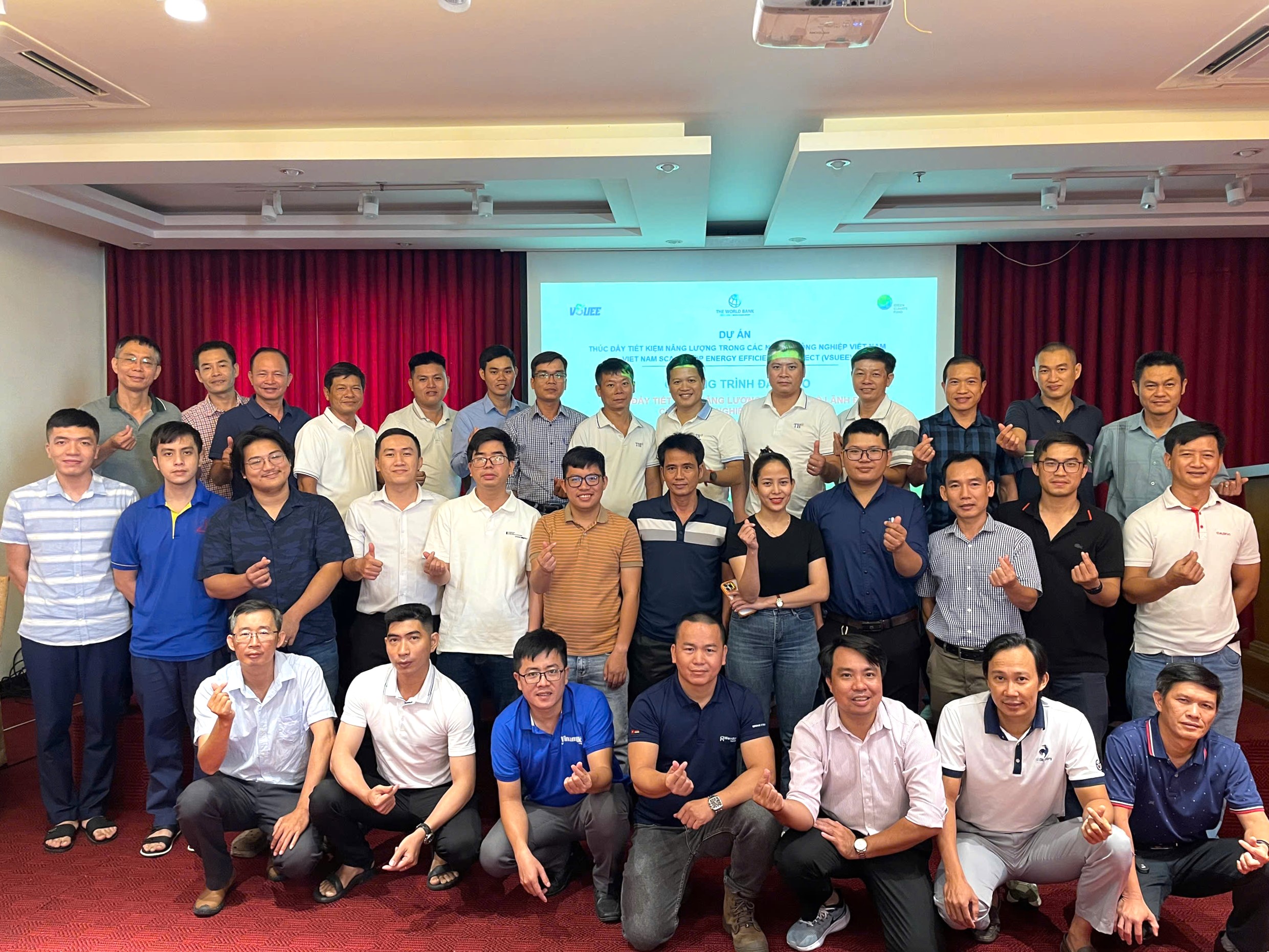The training course is an activity under the framework of the Vietnam Scaling Up Energy Efficiency Project (VSUEE). This is one of the key activities of Component 2 – Technical Assistance, aiming to enhance capacity and promote the application of energy efficiency (EE) solutions in industrial enterprises. The training is held over five days, from July 28 to August 1, 2025.
The training program is attended by industrial enterprises with high energy consumption such as plastics, sugar, food, beverages, textiles, rubber, electronics, machinery, etc.
The training course in Da Nang was attended by energy managers and leaders from energy-intensive industries such as plastics, sugarcane, food, beverages, textiles, rubber, electronics, mechanics, etc. These industries play an important role in Vietnam’s industrial supply chain, with stable growth rates and high export value. However, they also face significant challenges related to energy consumption, particularly electricity and thermal energy. Statistics show that many enterprises in these sectors have energy costs accounting for up to 15–25% of total production costs, largely due to outdated equipment, suboptimal operation systems, and non-modern production technologies.
The training program targets two key groups: energy managers and industrial enterprise leaders. The program content is designed to be in-depth, combining theory, practice, and real-life case analysis, focusing on the following pillars: (i) Strengthening capacity to identify and develop energy efficiency projects; (ii) Conducting energy audits and financial analysis for EE projects; (iii) Introducing and applying measurement, reporting, and verification (MRV) systems; (iv) Marketing and business strategy for industrial manufacturing enterprises.
The leadership training session was held on July 28, 2025.
As part of the VSUEE Project’s training and technical support activities, many energy efficiency technology solutions were introduced and recommended for implementation, tailored to each specific industrial sector:
Plastics industry: With very high electricity consumption due to heating devices, injection molding, extrusion, blow molding machines, compressors, and cooling systems, recommended solutions include upgrading heating systems, optimizing production lines, using renewable energy in production facilities, and applying energy-saving technologies and solutions such as insulation, induction heating, integrating robots and smart sensors into production lines, as well as using inverters to control motor loads according to real demand.
Food industry: As energy consumption mainly comes from steam systems, cooling systems, and motors, solutions include optimizing boiler systems, steam distribution, recovering heat from boiler exhaust gas for auxiliary heating, applying high-efficiency boilers (fluidized bed, biomass), improving chiller systems, and replacing old motors with high-efficiency motors.
Dairy industry: Since the production process uses a large amount of hot and cold water, companies are advised to recover heat from wastewater, optimize sterilization-pasteurization processes, upgrade chillers, and apply smart monitoring for each production stage.
Sugar industry: With great potential for using bagasse as fuel, solutions focus on optimizing boilers, applying cogeneration to generate electricity from excess steam, recovering condensate water, and automating thermal system operations.
Beverage industry: Energy-saving measures include using high-speed bottle blowers, energy-efficient filling systems, variable-speed pumps for water treatment, centralized chillers with heat recovery, and industrial LED lighting, helping enterprises save energy and increase production efficiency.
In addition to sector-specific solutions, industrial enterprises are also recommended to adopt cross-sector measures such as implementing energy management systems according to ISO 50001 standards, conducting regular energy audits to detect waste, applying MRV systems (Measurement – Reporting – Verification) to track performance, and particularly developing energy efficiency investment projects eligible for preferential loans from banks or green finance funds. The synchronized application of these technological solutions not only helps reduce production costs but also significantly contributes to green transformation and emission reduction in Vietnam’s industrial sector.
The training courses for energy managers were organized over four days (from July 29 to August 1, 2025) with the participation of more than 30 trainees.
The training program not only helped energy managers access specialized knowledge and tools on EE but also contributed to building strategic thinking for enterprise leaders, supporting them in making effective investment decisions, reducing operating costs, and enhancing competitiveness in the global supply chain. This is a practical step towards realizing Vietnam’s commitment to net-zero emissions by 2050, while promoting the green transformation of the industrial sector and improving access to demanding export markets such as the EU, the United States, and Japan.
VSUEE Project Management Board.











 Consultation on the methodology for developing and updating energy consumption standards for four major industrial sectors
Consultation on the methodology for developing and updating energy consumption standards for four major industrial sectors
 Opening of the 2025 Energy-Efficient Equipment and Green Transition Exhibition Fair
Opening of the 2025 Energy-Efficient Equipment and Green Transition Exhibition Fair
 Energy-saving solutions and green transition promotion
Energy-saving solutions and green transition promotion
 The 9th VEPG Steering Committee Meeting: Strengthening Coordination for Viet Nam’s Just Energy Transition
The 9th VEPG Steering Committee Meeting: Strengthening Coordination for Viet Nam’s Just Energy Transition